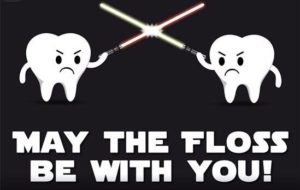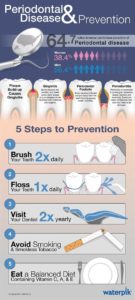Dental Emergencies!
We all try to avoid Dental Emergencies as much as possible, right? But still, accidents do happen. It’s important that you know what to do in these situations, because it could mean saving you a tooth and a lot of pain! So we want to give you a heads up. Here is some advice on how to handle some of the most common dental emergencies:
Knocked Out Permanent Adult Tooth – Find the tooth and keep it moist at all times! If you are able to, try and place the tooth back in the socket without touching the root. If this isn’t possibly, put the tooth in your mouth, between the cheek and the gums. If you have milk near by, you can also soak it in that. Then call Dr. Barney and get to our office immediately!
Cracked Tooth – Immediately clean your mouth by rinsing with warm water. Then find a cold compress and hold it on your cheek next to the cracked tooth to help eliminate any swelling. Then give us a call!
Deep Bite in Tongue or Lip – Gently clean the area with a water and apply a cold compress. Then give us a call!
Severe Tooth Aches – Clean out your mouth by rinsing with warm water. The use floss to gently remove any food caught between the aching teeth. Please do not put Asprin on your aching tooth or gums. Then, once again, give us a call!
Objects Stuck in the Mouth – Attempt to remove the object with floss. Please do not try and remove it was sharp, pointed instruments as this has the potential to cause even more harm to the mouth. If floss cannot remove the object, give us a call!
If we didn’t make it clear enough above, please never hesitate to give us a call if any of these things happen to you. Dr. Barney and the rest of our staff here at Brookdale Dental in Boise are always happy to take care of you, and all of these emergencies should never be taken lightly! Our phone number is (208)373-0018.
While accidents will always happen, here are some helpful tips on how you can prevent tooth/mouth injuries:
- Always wear a mouth guard when participating in highly physical sports or recreational activities.
- Avoid chewing ice, pop corn kernels, or hard candies.
- Never try and tear or cut things with your teeth! Just use the scissors.
Periodontal Disease: Facts and Prevention
If your hands bled when you washed them, you would be concerned. Yet, many people think it’s normal if their gums bleed when they brush or floss. In a 1999 study, researchers at the U.S. National Institutes of Health (NIH) found that half of Americans over 30 had bleeding gums.
Swollen and bleeding gums are early signs that your gums are infected with bacteria. If nothing is done, the infection can spread and destroy the structures that support your teeth in your jawbone. Eventually, your teeth can become so loose that they have to be extracted.
“Perio” means around, and “dontal” refers to teeth. Periodontal diseases are infections of the structures around the teeth, which include the gums, periodontal ligament and alveolar bone. In the earliest stage of periodontal disease — gingivitis — the infection affects the gums. In more severe forms of the disease, all of the tissues are involved.
For many years scientists have been trying to figure out what causes periodontal disease. It is now well accepted that various types of bacteria in dental plaque are the major villains. Researchers also are learning more about how an infection in your gums can affect your overall health.
What Causes Periodontal Disease?
Periodontal disease is caused by bacteria in dental plaque, the sticky substance that forms on your teeth a couple of hours after you have brushed. Interestingly, it is your body’s response to the bacterial infection that causes most of the problems. In an effort to eliminate the bacteria, the cells of your immune system release substances that cause inflammation and destruction of the gums, periodontal ligament or alveolar bone. This leads to swollen, bleeding gums, signs of gingivitis (the earliest stage of periodontal disease), and loosening of the teeth, a sign of severe periodontitis (the advanced stage of disease).
Article Source: COLGATEPROFESSIONAL.COM
The most important thing to remember is that Periodontal Disease is preventable! Here are 5 things to help you prevent it!
- Brush Your Teeth At Least Twice a Day
- Floss Your Teeth At Least Once a Day
- Visit Dr. Barney Two Times a Year
- Avoid Smoking and Smokeless Tobacco
- Eat a Balanced Diet
Visit our informational page for Warning Signs of Periodontal (Gum) Disease!





